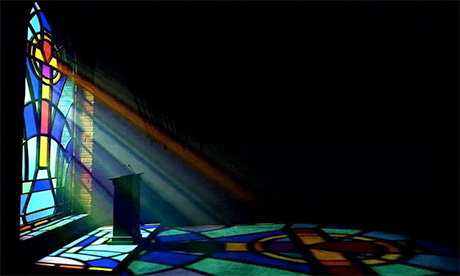Pope Francis recently announced that he would remove the phrase “lay men” from Canon 230 and replace it with “lay persons”.
This change to the church’s legal code means that women can now be permanently installed as lectors or acolytes – essentially, readers, distributors of Communion and assistants at Mass and the sacraments.
Although not a radical change – women have been carrying out these duties for decades – the decision was welcomed by the international Women’s Ordination Conference.
It is seen by some as progress.
However, it remains the case that married and single men can be ordained deacons in the Catholic Church. Women cannot.
In 2016 Francis established a commission to examine whether women could or should be ordained deacons. The commission’s report in 2019 has not been published. Stating that the outcome was inconclusive, Francis established another commission in 2020.
At least four such studies have taken place since the 1970s. None have recommended against women deacons.
Theologian Phyllis Zagano, whose research on the history and theology of women deacons is extensive and incontrovertible, was a member of the original commission but is not a member of this second commission.
This does not bode well for a recommendation by it for ordination of women deacons.
To date, calls for restoration of the diaconate to women have fallen on deaf ears in Rome. Calls for reform of ministry and the reinstatement of women deacons and ordination of women to the priesthood come from many parts of the Catholic world.
The Synod of Bishops for the Pan-Amazon region in 2019 begged the pope to permit women deacons and married priests; it is not on its own. The newly consecrated Archbishop of Dublin Dermot Farrell, in an Irish Times interview on January 2nd, also stated that he would like to see women deacons, as did the Association of Catholic Priests of Ireland in 2014.
Attitude
In Germany, two bishops are on the record recently as calling for change in the church’s attitude to the ministry of women. Leading this group is Bishop Georg Bätzing of Limburg, elected president of the German bishops’ conference in 2020.
He went further, stating that it is increasingly difficult to justify the ban on ordaining women. Bishop Gebhard Fürst of Rottenburg-Stuttgart said in 2017 that women deaconesses are a “sign of the times”.
Restoration of women’s diaconate should not be seen as a solution to the declining numbers of men joining the priesthood, but rather as a means of accommodating the diversity of gifts, talents and decision-making that women would bring to ministry and leadership, thereby enriching the whole community. Continue reading
Additional readingNews category: Analysis and Comment.




